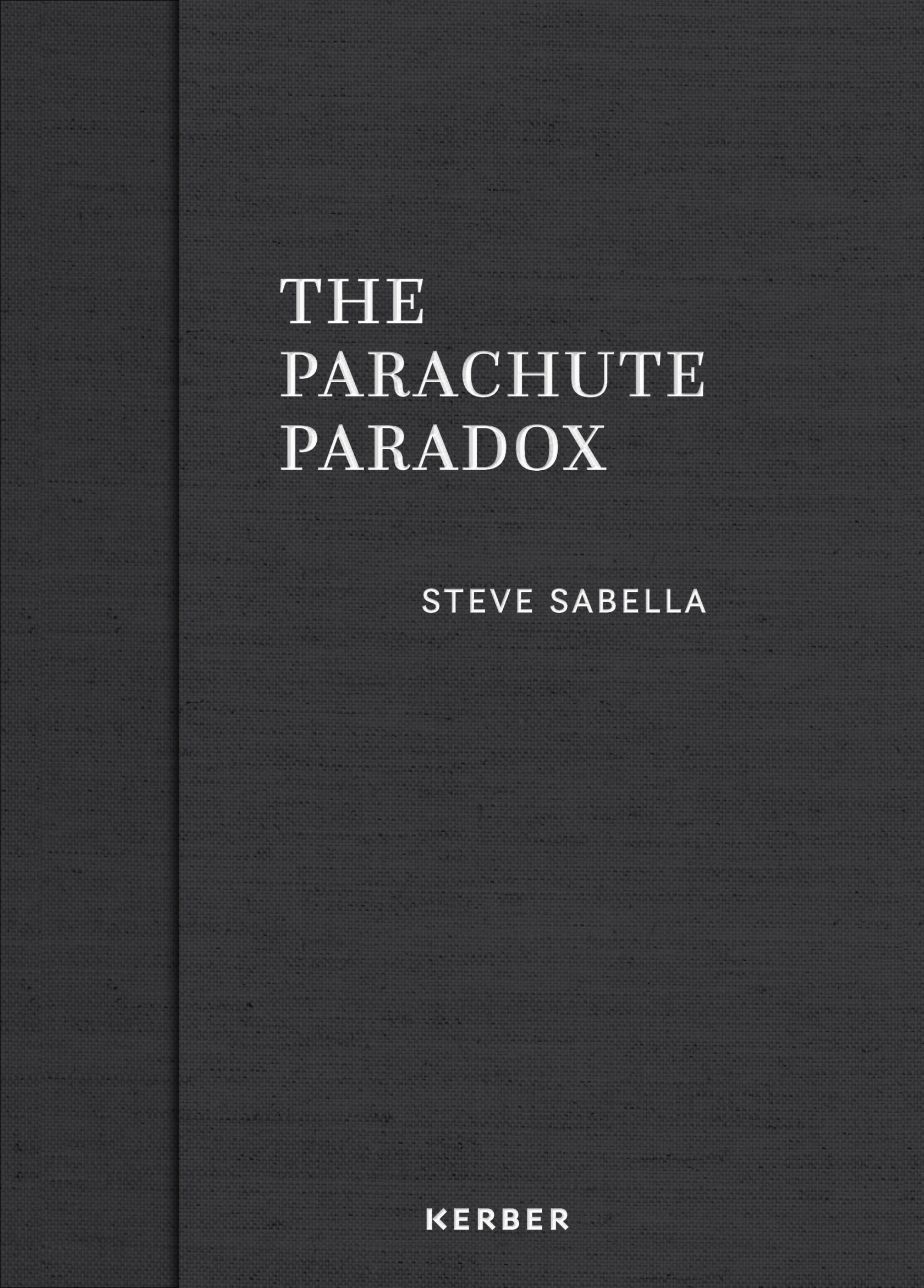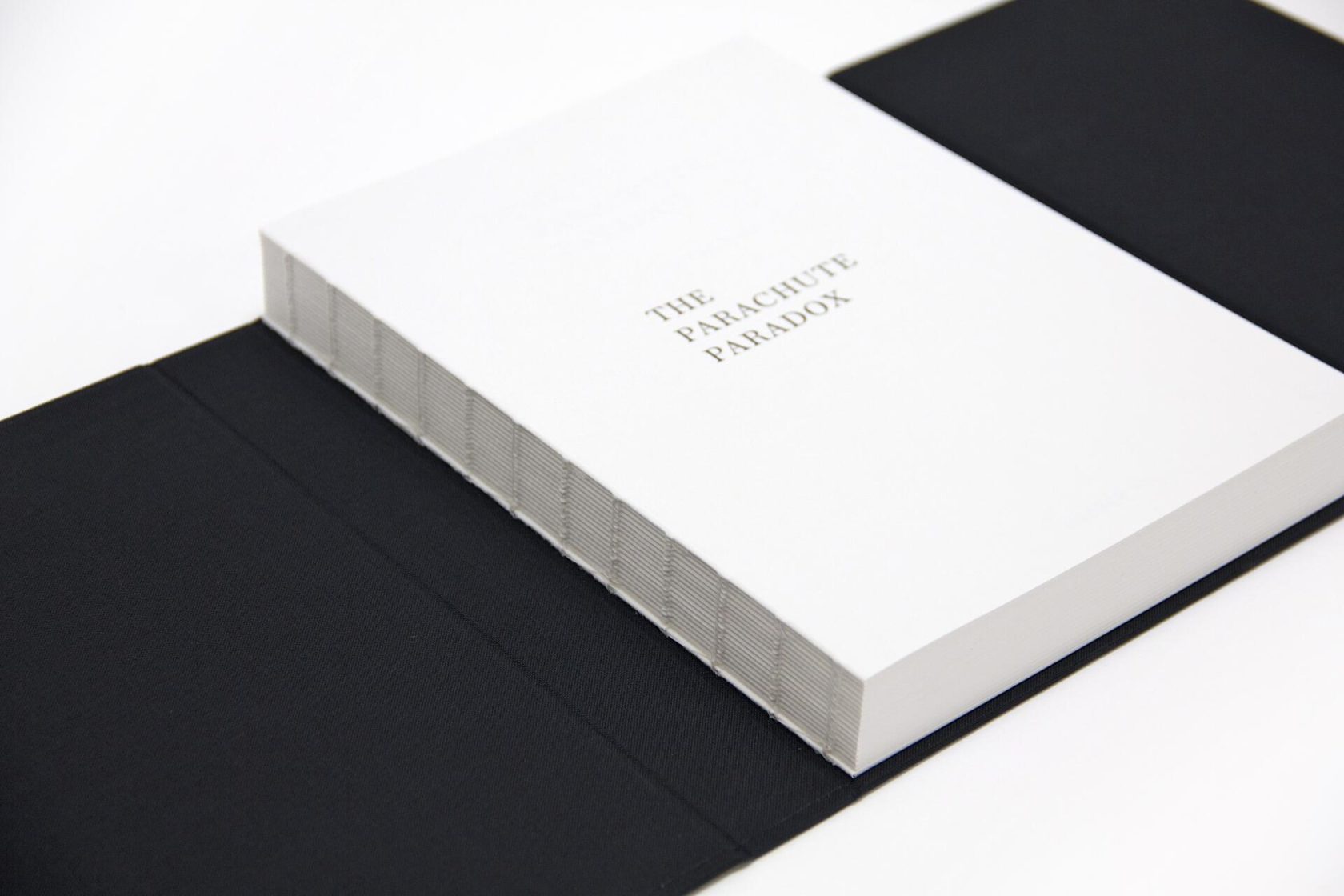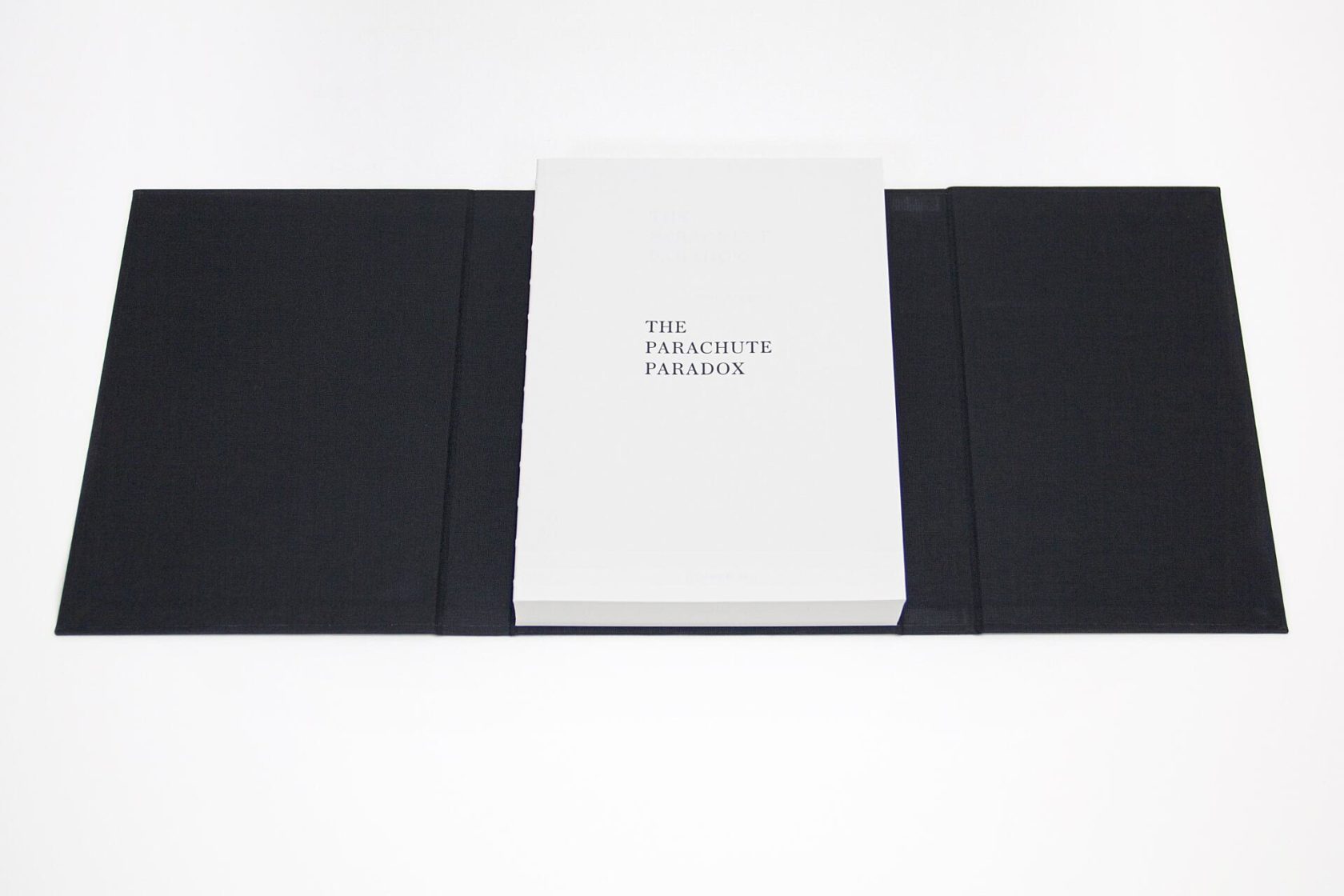Click here for the new SteveSabella.Space | This website is no longer being updated
Kerber Verlag
Limited Edition of 1250 & 150 Artist Proofs
16,50 x 23,00 cm
304 pages
ISBN 978-3-7356-0305-0
Hardcover with clothbound Swiss brochure, english
Order a signed copy by emailing art@stevesabella.com
Signed, shipment included. 50 euros
The Parachute Paradox offers narrative storytelling of the life of the Jerusalemite artist and his experiences under Israeli occupation and proposes a subject that is unprecedented in Palestinian literature: the liberation of the self and the homeland through the liberation of the imagination.
-Al-Araby Al-Jadeed
The Parachute Paradox is therefore also a book about the transformation of the self, about freedom, about liberating the image of Jerusalem from her ideological confinement, about the power of love, and about the artistic imagination breaking free.
read introduction
The Parachute Paradox tells the life story of artist Steve Sabella (*1975), who was born in Jerusalem’s Old City and raised under Israeli occupation. After living through both intifadas, being kidnapped in Gaza, and learning to navigate Palestinian and Israeli culture, he feels in exile at home.
For him, the occupation attaches each Palestinian to an Israeli, as if in a tandem jump. The Israeli is always in control, placing the Palestinian under threat in a never-ending hostage situation. He realizes he has two options: either surrender or unbuckle his harness.
Blurring fact and fiction, love and loss, the memoir traces one man’s arduous search for liberation from within, through a confrontation with his colonized imagination.
Eric Hoffer Award winner announcement on
The US Review of Books:
The Parachute Paradox, Steve Sabella, Kerber Verlag – With a clever and intriguing cover, this book eagerly invites the reader to explore its contents. Perhaps the fact that the author is an accomplished artist and photographer explains the volume’s elegant appearance. The book’s content isn’t any less appealing. We learn the story of a Christian boy growing up among Arabs in Israeli-occupied Palestine, drowning in the toxic national and religious ideology that surrounds him. We later discover a young man who’s freedom does not exist except as an expression of his art, and as an endless love for the girl of his dreams. We finally encounter a mature, conflicted man pursuing his career in exile and using art as the vehicle of his liberation.
This memoir offers a glimpse into the perpetual Israeli-Palestinian conflict through the eyes of an innocent bystander, who struggles to survive and who learns to live free, if only in his mind. Meanwhile, the Palestinian and the Israeli existence continues to be linked like the parachute jumper and his trainer, who descend in a dangerous tandem toward an insecure future.
THE PARACHUTE PARADOX –
BERLIN BOOK LAUNCH
October 18, 2016
At the Institute of Cultural Inquiry, Berlin
Including reading, discussion with Alya Sebti, director of ifa-Galerie Berlin, moderated by Dr. Almút Sh. Bruckstein, founder of Taswir Projects, Q&A and signing, in cooperation between ICI Berlin, Steve Sabella, ifa-Galerie and Taswir Projects
watch video
1:29.21 mins
THE PARACHUTE PARADOX –
LONDON BOOK LAUNCH
November 21, 2016
At the University of London, SOAS
Including a reading, discussion with Dr. Siba Aldabbagh and Professor Wen-Chin Ouyang, Q&A and signing, sponsored by the Centre for Cultural, Literary and Postcolonial Studies (CCLPS), the Department of the Languages and Cultures of Near and Middle East (NME), and the Centre for Palestine Studies (CPS)
SOAS’ feature
watch video
1:10.14 mins












